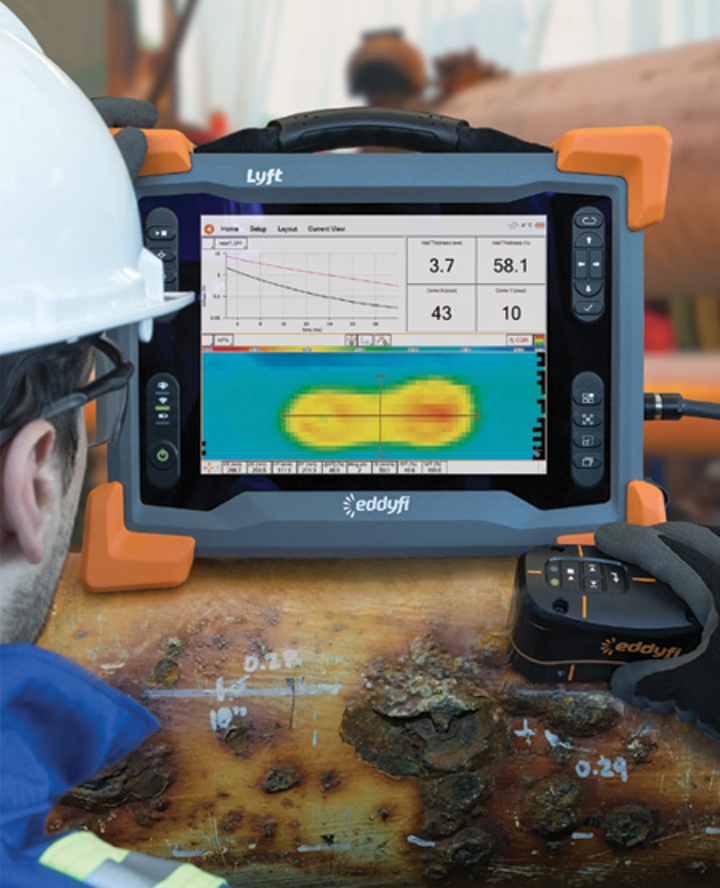Course Details
Your Growth, Our Mission

Course Description
The Training Course Will Highlight ?
Training Objective
Upon completion of this course, you will gain an understanding of corrosion engineering in oil and gas production involving the various methods available for corrosion control, regulatory and safety matters, and the contribution of an integrated monitoring and inspection programme for operations and diagnosis of problems.
Target Audience
The course is designed essentially for process and mechanical engineers employed by the operating companies engaged in oil and gas production. The material is also appropriate for those personnel concerned with specialist functions in the oil industry including inspection, material selection, and corrosion control, as well as those involved in R&D.
Staff of service companies providing corrosion inhibitors and overall corrosion services should also find this course beneficial, together with companies or manufacturers marketing materials, coatings and equipment for cathodic protection, inspection (NDT) and corrosion monitoring.
Training Methods
Daily Agenda
Overview – Corrosion in Oil and Gas Production
Economics of Corrosion Damage:
- Loss of production
- Repair costs
- Material choice
- Corrosion control methods – Relative costings
- Management of corrosion control
- Political considerations
- Safety
- Environment
Introduction to Corrosion and Corrosion Control:
- Definitions
- Materials Involved
- Environments
- Corrosion Damage
- Metallurgy
- Methods for Protection
Basic Corrosion Principles:
- Corrosion Rate
- Electrochemical Reactions
- Electrode Potentials
- Kinetics
- Passivity
- Temperature
- Pressure
- Velocity
- Conductivity
- pH
- Dissolved Gases
Forms of Corrosion:
- Uniform
- Pitting
- Crevice
- Galvanic
- Erosion
- Intergranular
- Weld Corrosion
- Selective Leaching
- High Temperature
- Turbulence
- Fretting
- Stress Corrosion
- Hydrogen Embrittlement
- Fatigue
Corrosion Aspects – Oxygen:
- Role of Oxygen in Oilfield Corrosion
- Downhole and Surface Equipment
- Waterflood
- Removal of Oxygen
- Analysis and Criteria for Control
Corrosion Aspects – Sour:
- Role of Hydrogen Sulphide
- Corrosion in Downhole, Surface, Storage and Pipelines
Corrosion Aspects – Sweet:
- Role of Carbon Dioxide
- Effect of Temperature and Pressure
- Corrosion of Well Tubing and Other Equipment
Corrosion Aspects – Bacterial:
- Effect on Corrosion Situation
- Micro-Organisms
- Techniques for Control
- Monitoring
Corrosion Prevention – Inhibitors:
- Types of Corrosion Inhibitors
- Choice and Selection
- Quality Assurance
- Logistics
- Criteria for Effectiveness
Corrosion Prevention – Design:
- Environmental Effects
- Consideration of Geometry
- Elimination of Stress
- Different Metals
- Velocity of Corrodent
- Temperature
- Design Codes
- Codes of Practice
- Standards
Corrosion Prevention – Cathodic Protection:
- Principles of Operation
- Applications
- Surveys
- Engineering in the Field
- Galvanic Systems
- Impressed Current Systems
- Criteria for Effectiveness
Corrosion Prevention – Materials and Selection:
- Carbon, Low Alloy, Stainless and Duplex Steels
- Non-Ferrous Metals
- Non-Metallic Materials
Corrosion Prevention – Coatings and Linings:
- Inorganic and Organic
- Metallic
- Surface Preparation
- Quality Assurance
- Inspection during Application
Corrosion Monitoring:
- Philosophy
- Objectives
- Methods
- Application
- Design Considerations
- Liaison with Inspection
- Integrated Systems
- Management
- Data Handling and Presentation
Water Chemistry:
- Scaling Properties
- Disposal
- Microbiology
- Corrosion Aspects
Manufacturers’ Demonstration:
- Corrosion Control Equipment
Inspection and Nondestructive testing (NDT):
- Inspection Function
- Calipers for Downhole Tubing
- Ultrasonic systems
- Radiography
- Intelligent Vehicles
- Other Methods
- Management of Contracts
Failure Analysis:
- System Approach
- Investigation of Corrosion Failures
Pipelines and Risers:
- Corrosion Hazards
- Methods for Control of Corrosion
- Inspection and Monitoring
- Coatings and Cathodic Protection
- Pressure Testing
Oil Treatment Corrosion:
- Crude Oil Properties
- Desalting
- Distillation and Other Processing
Case Histories Workshop
Sweetening Processes –Corrosion
Quality Assurance:
- Philosophy
- Planning
- Quality Profile
- Role of Certifying Authorities
Subsea Systems – Corrosion:
- Ramifications Infrastructure
- Inspection and Corrosion Monitoring
Case History – Oil Storage Tank Corrosion
Oilfield and Oil Treating Facilities:
- Offshore Platforms
- Downhole Equipment
- Surface Equipment
- Terminals
- Course Discussions
- Course Evaluation
- Course Summary
Accreditation
BTS Consultant certificate will be issued to all attendees completing minimum of 75% of the total tuition hours of the course.
Quick Enquiry
Request Info
Related Courses
Your Growth, Our Mission

